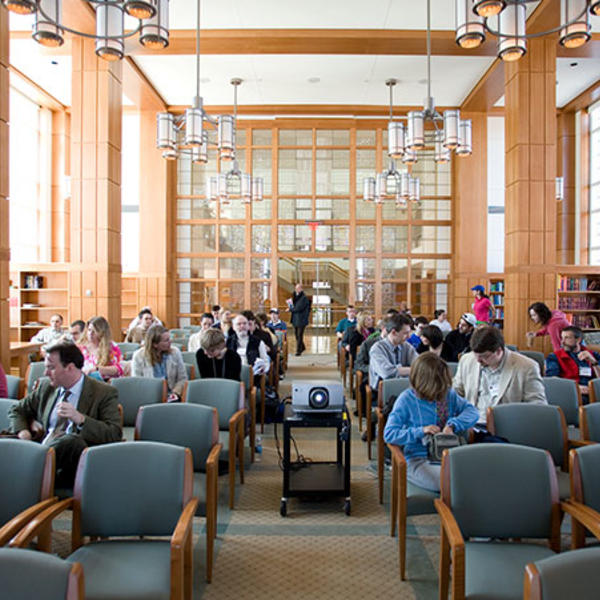A diverse group of scholars will convene at the College of the Holy Cross Nov. 15-17 for a conference on “Religion, Protest and Social Upheaval.” All conference sessions are free and open to drop-ins. Find the schedule here.
The recent proliferation of social, political, and economic protest and populist expression, from Black Lives Matter to White Nationalism, invites renewed exploration of religion's age-old power to fuel and shape culture for both good and ill. This conference will bring together scholars across national and religious divides to examine the impact of religion on social and political movements organized around six themes — nationalism, immigration, race, gender, economics, and ecological concern.
Opening Wednesday afternoon, Nov. 15, conference presenters will address India’s Hindu Nationalism as well as white nationalism here in the United States, and the hard lining on Muslim and Latinx migration to America. A full day on Thursday, Nov. 16, will look at religion and women’s protest, queer politics in Korea, the alt-right and racial justice, religion and capitalism, and Muslim union organizing. Finally Friday morning, Nov. 17, will feature the eco-peace movement in Jeju Island, Korea, and Laudato Si, Pope Francis’s encyclical on the environment.
Speakers include:
- J. Kameron Carter, Duke Divinity School
- Tara Chung Hyun Kyung, Union Theological Seminary
- Mary Doak, University of San Diego
- Nichole Flores, University of Virginia
- Ju Hui Judy Han, UCLA
- Zayn Kassam, Pomona College
- Kwok Pui Lan, Emory University
- Balmurli Natrajan, William Paterson University
- Donovan Schaefer, University of Pennsylvania
- Devin Singh, Dartmouth College
- C. Melissa Snarr, Vanderbilt Divinity School
- Mark Lewis Taylor, Princeton Theological Seminary
Holy Cross faculty members will serve as respondents.
This conference is co-sponsored by the Department of Religious Studies and the McFarland Center for Religion, Ethics and Culture.
